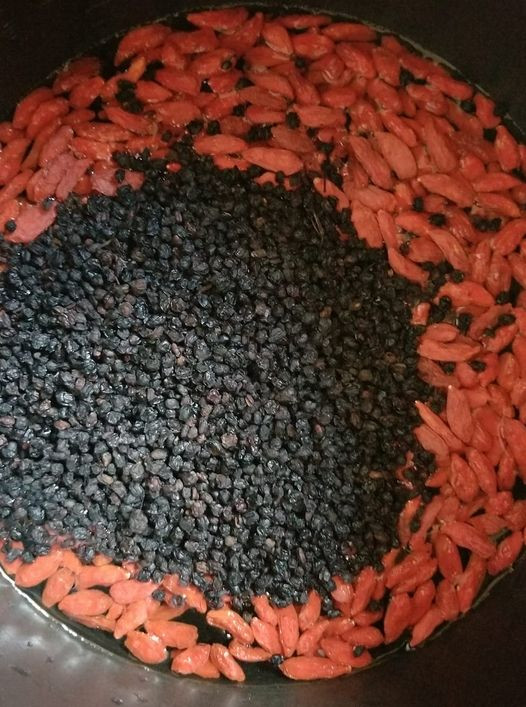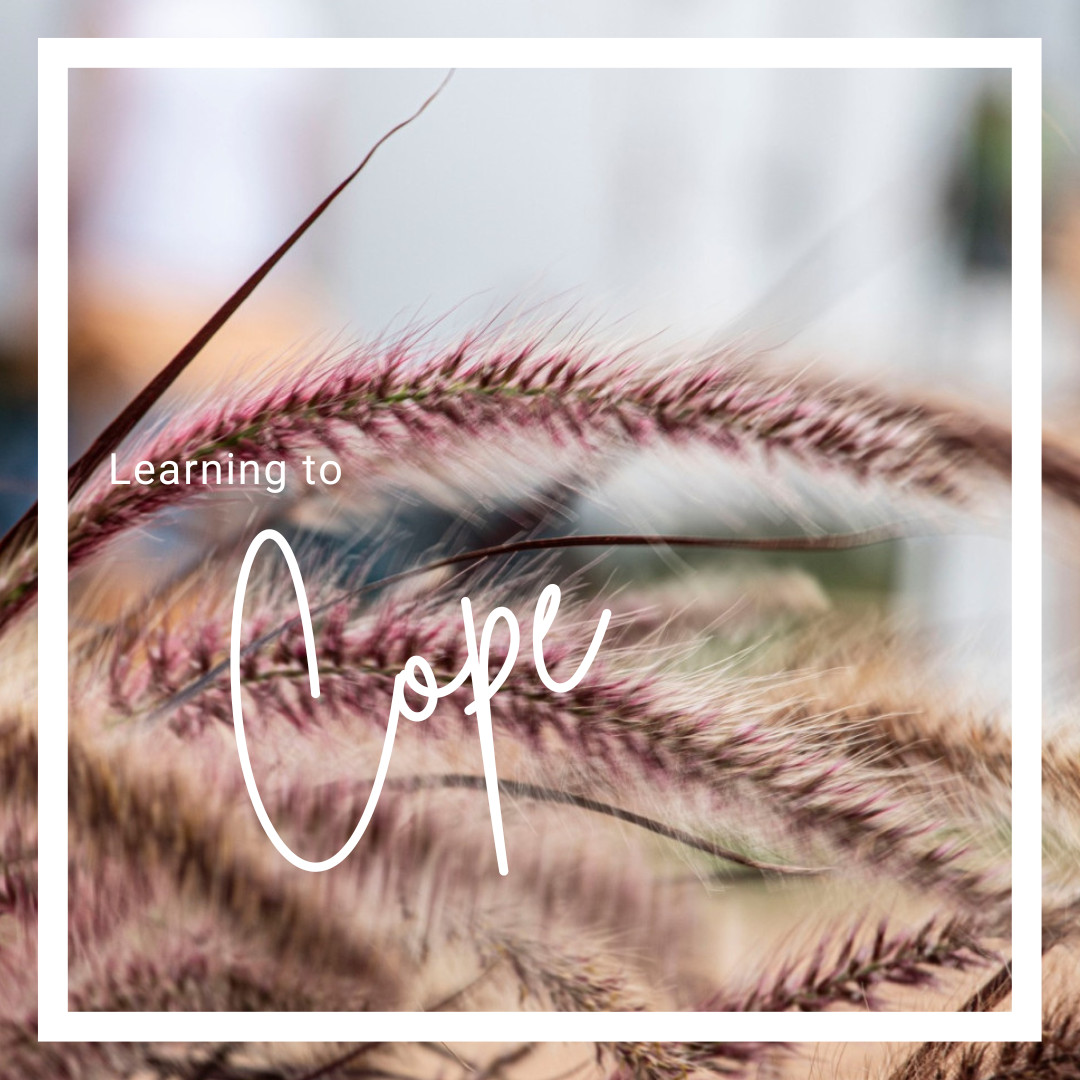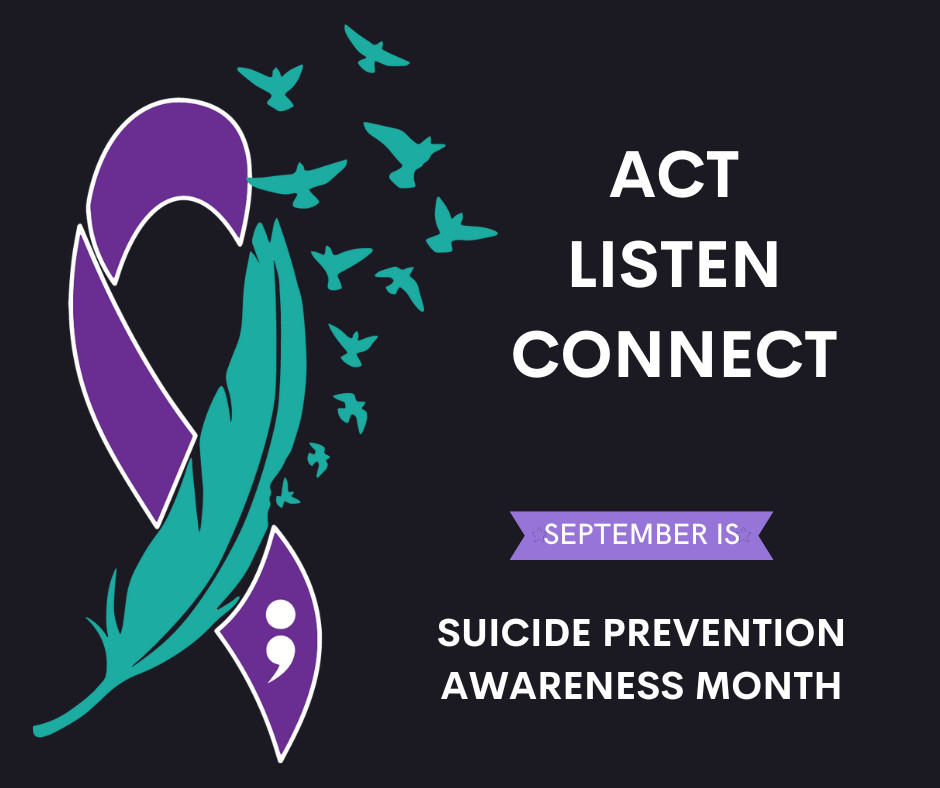
 November 14, 2014. It was the day that this little angel became a real angel, That’s the day my daughter Brianne, chose to end her life. As a parent, the pain of losing a child is something that no one should ever have to experience, and it is something that will never go away. Every year, as November 14th approaches, my pain and grief intensify, as memories of that day come flooding back. Today, I want to share my experience about the loss of my daughter, Brianne, and how I've coped with the intense pain and grief over the years.
November 14, 2014. It was the day that this little angel became a real angel, That’s the day my daughter Brianne, chose to end her life. As a parent, the pain of losing a child is something that no one should ever have to experience, and it is something that will never go away. Every year, as November 14th approaches, my pain and grief intensify, as memories of that day come flooding back. Today, I want to share my experience about the loss of my daughter, Brianne, and how I've coped with the intense pain and grief over the years.The first few years after Brianne's death were extremely difficult. It's hard to describe the feeling of losing a child. There was a gaping hole in my soul that will never heal. Those first years, I cried every day, and I felt like I didn't know how to live without her. But as time passed, I started to come to terms with my grief. I began to open up and talk to other parents who had lost a child and found it was good to talk to someone else who understood what I was going through.
One of the hardest things about losing Brianne was dealing with the "what-ifs." What if I had done something differently? What if I had seen the warning signs? What if I had been there for her? These thoughts would creep into my head and haunt me. But I learned that dwelling on these thoughts would only make my grief worse. There are no do over’s in life. It's important to focus on the positive memories you shared with your child and celebrate their life.
Another thing that helped me cope was finding healthy ways to deal with my grief. I started honoring her memory. She love the moon and we all talk to it. I listen to music that she loved or reminds me of her. I started writing my blog. It's important to find an outlet that works for you. Everyone grieves differently, and what works for one person might not work for another.
As this date approaches each year, I still find myself struggling to cope with my grief all over again. The day brought back all the painful memories and emotions. What I’ve learned over these last 9 years is that, I learned that it's okay to not be okay on that day. It's okay to take some time off work and focus on my emotions. It's okay to seek support from friends and family. It's okay to not have it all together.
The most important thing I learned through my grief journey was that it's okay to ask for help. I found comfort in attending support groups and talking to a therapist. It can be hard to reach out, but it's important to remember that there is no shame in seeking help. You don't have to go through this journey alone.
The loss of a child is something no parent should ever have to go through. Days like birthdays and holidays and the day they chose to leave us open a wound that never really heals. Everyone's grieving process is different, but there are things you can do to make the journey a little easier. Remember to take care of yourself, find support, and celebrate your child's life. You will never forget the day you lost your child, but you can learn to live with the pain and keep moving forward.
~Brianne'sMom F31

Dealing with the loss of a loved one to suicide can lead to increased stress levels and a weaker immune system. It is essential to take care of your health, especially during the flu and cold season. One way to boost your immune system is by taking elderberry supplements. Numerous studies have unveiled the remarkable immune-boosting prowess of elderberries, as confirmed by several studies.
Incredible findings from the early 2000s demonstrated their exceptional ability to slash flu duration by half, and in many instances, alleviate symptoms within just 48 short hours.
But that's not all! A more recent study from 2016 shows that these magical berries work wonders against the common cold.
The 2004 research, published in the esteemed Journal of International Medical Research, revealed that when elderberry extract is administered within 48 hours of flu onset, it significantly reduces symptom duration by an average of four days.
Patients in the study were given 15 ml of elderberry syrup four times a day for five days. This treatment had a remarkable impact and shortened the duration of flu symptoms.
In 2009, a study published in the Online Journal of Pharmacology showed even more exciting results. Patients with H1N1 and avian flu were provided with four 175-milligram doses of elderberry extract daily. The extract exhibited immediate improvement, while the placebo group showed no progress or even worsening symptoms.
Within just 24 hours, patients receiving elderberry extract experienced reduced fever, headache, muscle ache, and nasal congestion. By the 48-hour mark, an astounding 90% of treated patients were either symptom-free or had only mild symptoms.
But wait, there's more! A 2016 study published in Nutrients revealed that elderberry can also tackle colds in air travelers. Those who used this herbal remedy from ten days before traveling until four to five days after arriving reported a significant reduction in the duration and severity of their cold symptoms.
Behind these extraordinary benefits lies a chemical compound found in elderberries that promptly immobilizes the flu virus. In a groundbreaking 2019 study, researchers explained precisely how this ancient remedy works.
The unique phytochemicals present in elderberries act as formidable shields, blocking the virus from infiltrating or attaching to our healthy cells when consumed preventatively during flu season. Even if the flu has already taken hold, the compound prevents the virus from replicating, consequently eradicating symptoms within a mere 48 hours.
The researchers used commercially farmed elderberries, which were transformed into a powerful juice serum and applied to cells before, during, and after influenza virus infection. The outcome was awe-inspiring—a potent direct antiviral effect against the flu virus, as described by Dr. Golnoosh Torabian.
And best of all? A 2022 study shows that elderberries are a source of bioactive compound with antiviral action, The polyphenols and lectins in elderberries give them the ability to inhibit coronaviruses.
So, embrace the supernatural abilities of elderberries and fortify your immune system. These exceptional berries hold the key to conquering the flu and common cold.
Instapot Wolfberry Elderberry Syrup
Let's talk about the elderberry. It's an ancient remedy that's been used for centuries to tackle flu, colds, and other respiratory issues. This little berry packs a powerful antiviral punch against the flu! Not only that, elderberry is known for its antioxidant activity and immune system support.
Now, onto wolfberry! This bad boy has been a star in Chinese medicine for ages. It's like a superhero for your immune system. Packed with nutrients like beta-carotene and a mountain of Vitamin C (500 times more than oranges, can you believe it?), wolfberries are the real deal. Plus, they come with a bunch of B Vitamins and 21 trace minerals to keep you going strong.
Last but not least, let me introduce you to the one and only raw honey. This honey is as pure and untouched as it gets. It's got all the good stuff: vitamins, enzymes, phytonutrients—you name it! And if that's not enough, bee pollen comes along for the ride, bringing a treasure trove of nutrients that your body craves.
We are going to combine these wonders into one mega immune system supporting syrup that you take daily.
INGREDIENTS
- 1/2 cup organic dried elderberries
- 1/2 cup organic dried wolfberries
- 4 cups filtered water
- 1 cup raw honey
- 1 drop of Clove Vitality Oil
- 1 drop of Orange Vitality Oil
- 1 drop of Thieves Vitality Oil
- 1 drop Frankincense Vitality Oil
Substitutions: I use essential oils because it saves money! There is no waste or excess food going bad. Essential oils last a long time and are concentrated. That doesn't mean you can't make this! In place of the essential oils, just add the following:
- 1 lemon sliced
- 4-6 cinnamon sticks
- 3-5 whole cloves
- 1 whole nutmeg cut in half (optional)
- 2 inches of fresh Ginger sliced
DIRECTIONS
This recipe will give you a whopping 3 cups of Elderberry Wolfberry Antioxidant Super Syrup. If you're using an Instant Pot, you can get it done in about 45 minutes. But hey, if you're feeling old-school, you can also make it on the stove, just be ready to wait around 4 long hours. Your call!
Throw those wolfberries and elderberries, along with some filtered water, into your trusty Instant Pot. Slap on the lid, seal it up, and let it do its thing for a solid 7 minutes. Then, give it some room to naturally release, and patiently count down another 15 minutes before opening the pot
Throw those wolfberries and elderberries, along with some filtered water, into your trusty Instant Pot. Slap on the lid, seal it up, and let it do its thing for a solid 7 minutes. Then, give it some room to naturally release, and patiently count down another 15 minutes before opening the pot
Pour the liquid through a strainer into a fancy glass pitcher (you'll get about 4 cups of liquid). Oh, and don't toss those strained berries away! I've got a little surprise for you - elderberry/wolfberry grain free bread, yeah! No Waste!
Now, pour that strained liquid back into the Instant Pot and give that Sauté button a good ol' smack! Watch it come to a roaring boil like it means business. Let it simmer down like a champ, reducing by half. Should take about 15-20 minutes, give or take. And voila! You should end up with a cool 2 cups of liquid gold. Enjoy!
Alright, pour that liquid goodness into a fancy glass container and throw in the raw honey. Give it a good mix until everything's buddies. Now we're talking about a yield of approximately 3 cups. Time to add those oils and get them all mixed in.
All you have to do now is pour your syrup into a bottle, stick it in the fridge, and you're good to go! It'll last for months, or even longer if you swap out some honey for brandy. Cheers to fresh and lasting goodness!
Adults: Take 1 Tbsp per day during the winter cold and flu season.
Kids: take 1/2 tsp per day
Take every 2-3 hours when you need an extra boost!

Grief is one of the most complex emotional experiences any person can undergo. It is especially true when someone loses a child to suicide. The death of a child not only shatters a parent's world but torments their souls as if it were a never-ending battle. Your soul is entwined with your child. You made them. It is not something you will ever “get over”. Yet, one of the most infuriating things that people tell parents is to "get over it." It’s a statement that only deepens the pain, and it's something I, a fellow suicide loss survivor, have heard too often.
Express Your Emotions
We learn early in life that expressing emotions is a sign of weakness. However, nothing can be further from the truth. From the moment you experience the loss of a child, there is a constant battle between your emotions and your intellect. Nobody forces you to follow set timelines, grieve a certain way, or stay strong. Each day is a new experience, a new emotion. So, let it all out. Cry when you need to. Laugh when you feel like it. Punch a pillow if it helps. Cry with those who will cry with you, and don’t be ashamed to show your emotions. With time, the intensity of your feelings will ease.
Try not to Isolate (this one is hard!)
Friends and family may try to help, but they may not know how to provide support. Don’t isolate yourself — it's a recipe for disaster. Try to find support groups of people who have experienced the same loss as you. In such groups, you’re free to talk about your feelings, and you can benefit from the support and advice of others who have walked the same path. These groups can help you move forward by showing you different ways that you can channel your pain and thoughts for the better.
Create a New Beginning
Suicide may have ended your child's life, but you're still here! Why? To tell there story. There’s no right or wrong way to cope with loss and grief. You may find that throwing yourself into an activity — reading, gardening, crafting, or even baking — helps you pass the time and allows you to create something new. Try to find something that you love and use it to form a new beginning while dealing with your grief. You may also find that volunteering at a charity can be therapeutic and can help others in similar circumstances. It is the perfect way to channel your emotions and potentially making a connection to other positive people.
Honor Your Baby
Keep them alive by picking up their torch. Did they have a favorite hobby? How about a cause that was important to them. You can do work supporting that in their name. Visit places they loved and do things they loved to do and most importantly. Speak of them. Often and with love. Say. Their. Name. Creating memorials for a loved one can sometimes feel painful, but at the same time, it provides an avenue to keep your loved one's memory alive. You can do this in several ways. For instance, you can create a scrapbook of all the good memories you had with your child, or you can design a memorial wall that allows you to display pictures and your child's great qualities. You may also want to keep a written diary that you keep privately and use as an outlet for your emotions, thoughts, and feelings. These are excellent ways to keep your child's memory alive and cherished.
Losing a child to suicide is a wound that never heals, and getting over it is not an option. This is a long and personal journey with no right nor wrong way to cope. So, to those parents out there that have heard, "get over it,” I hope this guide has provided some helpful advice. Please express your emotions, don’t isolate yourself, create a new beginning, and create a memorial for your loved one. I'm not here to offer a panacea or easy fixes, just a helpful hand for those on this difficult path. Keep moving forward with the love of your cherished child always in your heart.
Remember, it's not how they died that is important. It's how they lived that they will be remembered for. Keep them alive.
You are powerful. You are loved. You are blessed.
Sending Love, Hugs and Healing Light
~BriannesMom f31 2014

For you, as a suicide loss survivor, the path to healing is a profound and enduring journey. but it becomes even tougher when you face the world, and you are told things like, "Just get over it" and "It was their choice." Comments like these are not only dismissive of the your pain and trauma, but it also reflects a fundamental misunderstanding of suicide loss.
The Difficulty of Processing Trauma
First, know that when you are told to “just get over it,” by well meaning friends and family, that is their lack of understanding or compassion. There is nothing wrong with you or the way you are grieving. Losing a child to suicide is undeniably traumatizing. The truth is, this trauma has a way of clinging to a person, especially when it is so intense and unexpected. You are often left to cope and process this pain alone. It takes time, counseling, and other forms of support for the survivor to make sense of this loss.
The Complexity of Suicide Loss
Suicide grief carries a level of complexity, which is different from grief over a natural death. In a natural death, people usually end up in a place of acceptance. Suicide grieving, however, is often met with confusion, anger, and guilt on top of raw grief. You will eventually understand that surviving their child isn’t the same thing as understanding why they died. To “just get over it” is to undermine the depth and complexity of your experience.
The Powerful Impact of Stigma:
Society stigmatizes death by suicide. Suicide often carries an unspoken shame, which is may be often internalized instead of letting it out. Many survivors report chronic self-blame and guilt, which only serves to prop up the stigma associated with suicide. This stigma can be reinforced by well-meaning people who tell you that your child “chose” suicide, and there was nothing that could be done. “Just getting over” suicide loss the same way as a natural death doesn’t account for the additional layers that this stigma brings.
Set Boundaries
What you as a suicide loss survivor needs compassionate understanding and a lot of support during those tough, tough times when you are in that dark place. It’s important for the you to feel validated in your pain, and for your grief to be seen as a legitimate experience. Set boundaries. This is your grief. You set the way you will navigate it.Instead of trying to deal with well meaning people who don't know what to say. Tell them what you need. Ask for help to develop some new coping skills to deal with all these new feelings. Ask for empathy. Ask for grace while you actively deal with your pain and work on healing. It’s all about being there and offering support no matter what.
The Art of Gradual Recovery
Grieving the loss of a child to suicide is something that will be there forever. Their is no "getting over it” because the healing process isn’t linear. Growth does happen, triggers lessen, and you will achieve a new normal, but grief will always be there. You will learn to live within it. That’s why professional help, support tools, and activities like meditation and self-care are useful. They help to soothe the grieving body and offer a sense of relief.
As a suicide loss survivor, I know the experience is complex, traumatizing, and filled with many layers of stigma. To dismiss our pain and trauma hinders our healing process. We need all the support We can get. Suicide loss is a tough and lengthy road to travel, but not impossible to navigate with the right resources and support from loved ones. Remember to be compassionate and understanding as we walk with our friends and loved ones through the overwhelming sadness and grief that come with suicide loss.
You are powerful. You are loved. You are blessed.
Sending Love, Hugs and Healing Light
~BriannesMom f31 2014

Suicide is a tough topic to discuss. It's uncomfortable, it's scary, and it's often stigmatized. As a suicide loss survivor, I know firsthand that dealing with the aftermath of suicide is incredibly challenging. But it's the stigma of suicide that often makes the experience even more isolating. The myths and misconceptions surrounding suicide can be harmful, not just for those who have lost someone to suicide, but also for those who may be struggling with suicidal thoughts themselves. That's why it's time to have an honest conversation about the stigma of suicide and work together to end the myths.
Myth #1: Suicide Is a Selfish Act
This myth suggests that people who die by suicide are only thinking about themselves and don't consider the impact their death will have on others. But the truth is, people who die by suicide are often experiencing immense emotional pain. They may feel like a burden to others, or like they have no other way out of their suffering. Suicide is not a choice people make lightly, and it's not a reflection of their character or how much they loved their family and friends.
Myth #2: Suicide Only Happens to People with Mental Illness
Nope. While mental illness can certainly be a risk factor for suicide, it's not the only one. Trauma, substance abuse, and chronic pain can also contribute to suicidal thoughts and behaviors. It's important to recognize that suicide can affect anyone, regardless of their mental health history.
Myth #3: Talking About Suicide Will Make People More Likely to Attempt It
This myth suggests that if we avoid talking about suicide, we can prevent it from happening. But the reality is, talking about suicide openly and honestly can actually help prevent it. When we create a safe space for people to talk about their thoughts and feelings, we can provide support and resources to help them stay safe.
Myth #4: People Who Attempt Suicide Are Just Looking for Attention
This myth is not only hurtful, but it's also dangerous , in fact this is just the opposite. People who attempt suicide are in distress and need help. Ignoring or dismissing their cries for help can increase their risk of future suicide attempts. After a while, our loved ones don't cry out. They put on a happy face and you don't see the intent until it's too late. We need to take all suicide attempts seriously and provide appropriate care and treatment.
Myth #5: Non-Fatal Suicidal Behavior Isn't Serious
Just because someone survived a suicide attempt doesn't mean they are no longer at risk. In fact, those who have attempted suicide are at increased risk for future attempts. It's important to support people who have survived suicide attempts and provide them with the resources and care they need to stay safe. My daughter tried four times that I know of prior to succeeding.
The stigma of suicide is harmful and can prevent people from getting the support and resources they need. Remember, this is a mental health issue. Their problem solving skills are overwhelmed by intense emotional pain. By having an open and honest conversation about suicide, we can work together to break down the myths and misconceptions. Let's create a world where talking about suicide openly and without shame is the norm. It's up to us. Together, we can support those who are struggling and prevent suicide from claiming more lives.







